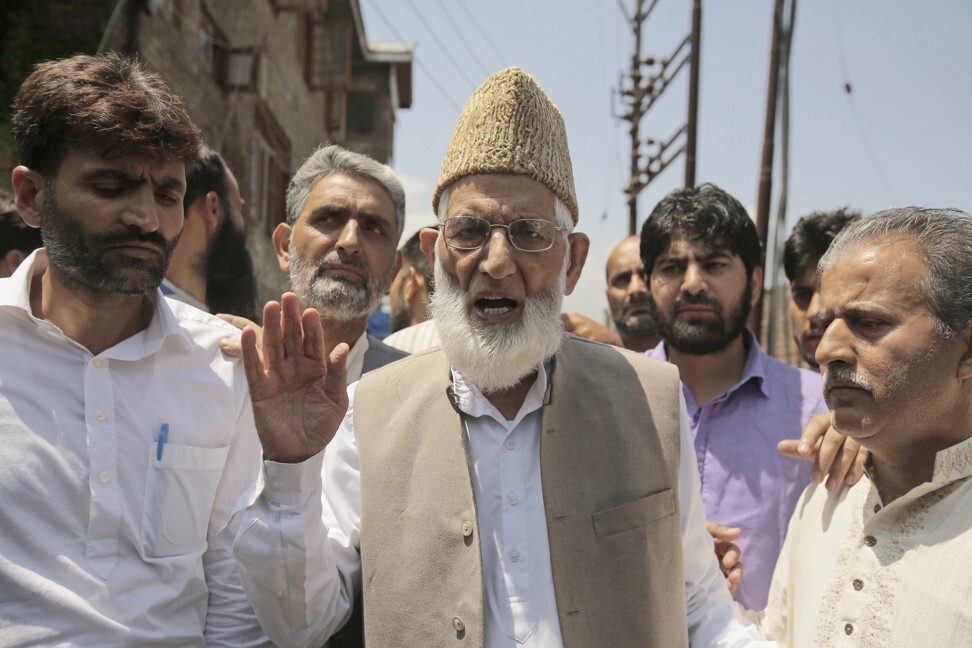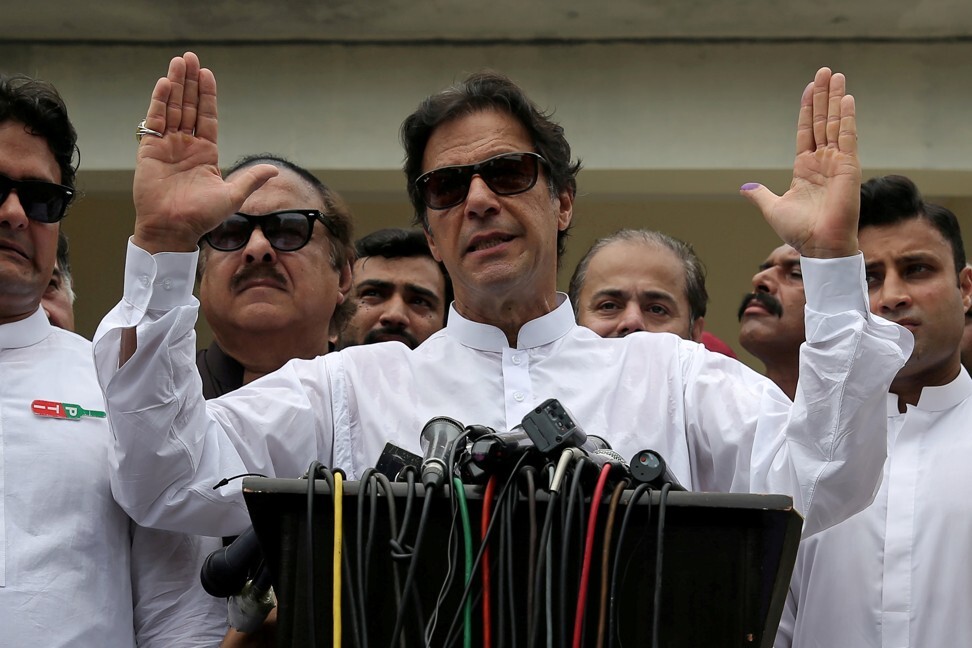
Kashmir crackdown after Syed Ali Geelani, resistance icon against Indian rule, dies at 92
- Geelani, who died late on Wednesday, was buried in a quiet funeral organised by authorities under harsh restrictions, his son said
- The 92-year-old was an ideologue and a staunch proponent of the merger of Kashmir with Pakistan
Geelani, who died late on Wednesday at age 92, was buried in a quiet funeral organised by authorities under harsh restrictions, his son Naseem Geelani said, adding that the family had planned the burial at the main martyrs’ graveyard in Srinagar, the region’s main city, as per his will but were disallowed by police.
“They snatched his body and forcibly buried him. Nobody from the family was present for his burial. We tried to resist but they overpowered us and even scuffled with women,” said Naseem Geelani.
The Kashmir village that ended domestic violence by banning dowries
Geelani was also the face of Kashmir’s civilian defiance against Indian rule. He led a faction of the All Parties Hurriyat Conference, a conglomerate of various Kashmiri political and religious groups that was formed in 1993 to spearhead a movement for the region’s right to self-determination.
The group used civil disobedience in the form of shutdowns and protests as a tactic to counter Indian rule.
Kashmir has long been a flashpoint between India and neighbouring Pakistan, which claim the region in full but rule only parts.
Rebels have been fighting against Indian rule since 1989. Most Muslim Kashmiris support the rebel goal that the territory be united either under Pakistani rule or become an independent country.

01:18
Kashmir residents seek leech therapy on Navroz
New Delhi accuses Pakistan of sponsoring Kashmiri militants, a charge Pakistan denies. Tens of thousands of civilians, rebels and government forces have been killed in the conflict.
A sainted figure in Kashmir, Geelani’s popularity catapulted to near reverence after 2008, when the region witnessed mass civil uprisings and he emerged as a prominent resistance leader among the new generation of Kashmiris. In the years that followed, hundreds of youths were killed by Indian forces in street protests.
As civilian defiance against Indian rule picked up, Geelani, along with two other top anti-India politicians, Yasin Malik and Mirwaiz Umar Farooq, who remain under detention, formed “Joint Resistance Leadership” in 2016. The group challenged India’s sovereignty over Kashmir and sought to give direction to people’s anger.
In Kashmir border town, villagers long for resumption of India-Pakistan trade
During Kashmir’s recent years of civilian protests, the slogan Na Jhukne Wala Geelani! Na Bikne Wala, Geelani! (Geelani, the one who does not bow and can’t be bought!)” became almost a war cry on the streets. He was widely venerated by Kashmiris, who gave him a moniker of Bub, which means “the father.”
“While his death has come from natural causes, we must remember the immense physical and psychological toll that his continuous detention and torture took on his health,” said Stand With Kashmir, a US-based Kashmiri diaspora-led international solidarity group.
Geelani was also widely respected by the region’s pro-India politicians.
“We may not have agreed on most things, but I respect him for his steadfastness & standing by his beliefs,” Mehbooba Mufti, the region’s former top elected official, said on Twitter.
Geelani’s maximalist approach forced India to court so-called moderate separatist leaders in Kashmir, though with no apparent breakthrough in resolving the dispute.
Pakistan’s Prime Minister Imran Khan said he was “deeply saddened” by Geelani’s death, adding that he had “struggled all his life for his people & their right to self determination”.
Under Khan, Geelani was in 2020 awarded the “Nishan-e-Pakistan”, Pakistan’s highest civilian honour, an award earlier received by the likes of Nelson Mandela, Fidel Castro and Queen Elizabeth.
“We in Pakistan salute his courageous struggle & remember his words: “Hum Pakistani hain aur Pakistan Humara hai (We are Pakistani and Pakistani is ours),” Khan said in a tweet.
Khan said his country would observe a day of official mourning on Thursday and the Pakistan flag would fly at half mast.
“Without doubt, Geelani was emblematic of our defiance of India that began in 1990,” said Siddiq Wahid, historian and former vice chancellor of a Kashmir university. “That is his legacy.”



